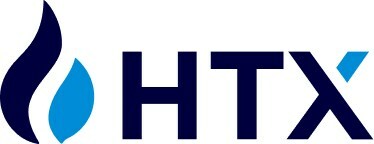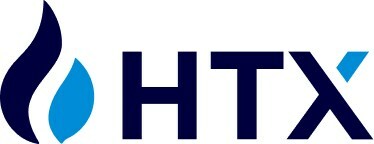The blockchain market size is expected to grow from $4.93Bn in 2021 to $227.99Bn by 2028; it is estimated to grow at a CAGR of 72.9% from 2021 to 2028.
New York, Feb. 11, 2022 (GLOBE NEWSWIRE) — The latest research study on “Blockchain Market Forecast to 2028 – COVID-19 Impact and Global Analysis By Component (Solutions and Services), Application (Payments, Exchanges, Smart Contracts, Documentation, Digital Identity, Governance, Risk and Compliance, and Others), and Industry Vertical (BFSI, Retail, Government, Transportation and Logistics, Healthcare, Automotive, Media and Entertainment, and Others)”, published by The Insight Partners.
| Report Coverage | Details |
| Market Size Value in | US$ 4,935.0 Million in 2021 |
| Market Size Value by | US$ 227,996.6 Million by 2028 |
| Growth rate | CAGR of 72.9% from 2021 to 2028 |
| Forecast Period | 2021-2028 |
| Base Year | 2021 |
| No. of Pages | 189 |
| No. Tables | 88 |
| No. of Charts & Figures | 89 |
| Historical data available | Yes |
| Segments covered | Component, Application, and Industry Vertical |
| Regional scope | North America; Europe; Asia Pacific; Latin America; MEA |
| Country scope | US, UK, Canada, Germany, France, Italy, Australia, Russia, China, Japan, South Korea, Saudi Arabia, Brazil, Argentina |
| Report coverage | Revenue forecast, company ranking, competitive landscape, growth factors, and trends |
Blockchain Market: Competitive Landscape and Key Developments
IBM Corporation, Accenture, Amazon Web Services, Oracle Corporation, and Intel Corporation are among the key players profiled during the study of the global blockchain market. In addition, several other essential market players were studied and analyzed to get a holistic view of the market and its ecosystem.
Get Exclusive Sample Pages of this research study at http://www.theinsightpartners.com/sample/TIPTE100002172/
In May 2019, Bitfury partnered with the Astana International Financial Centre (AIFC), a Kazakhstan-based financial hub, to apply blockchain technology across several industries. The Astana International Financial Centre (AIFC) would apply the company’s blockchain expertise in creating projects and promoting new startups on an international scale.
In March 2019, Ripple and Forte announced an ambitious project to integrate blockchain technology into video games. The plan features US$ 100 million funds for developers. This project would expand its blockchain services beyond its core business.
Blockchain technology and its applications in the banking, financial services, and insurance (BFSI) sector have attracted a lot of attention in the past few years, majorly due to its ability to transform existing industries’ foundations and business models. Presently, apart from cryptocurrency applications, the other major practical applications of Blockchain are still in the banking and financial sector; however, various companies and institutions are now rapidly developing Blockchain-based solutions to solve complex business problems. In general terms, Blockchain is a subset of a broader distributed ledger technology (DLT), and it combines three significant concepts – cryptography, smart contracts, and distributed ledger design. Distributed ledger technology (DLT) is a fast-emerging approach that records and shares data across various data stores/ledgers. DLT facilitates the recording, sharing, and synchronization of transactions and data across a distributed network of different network participants.
Inquiry Before Buying: http://www.theinsightpartners.com/inquiry/TIPTE100002172/
Blockchain can be classified into three major categories – public blockchains, federated blockchains or consortium blockchains, and private blockchains. Some examples of public blockchains are Bitcoin, Ethereum, Monero, Dash, Litecoin, and Dogecoin, among others. Federated blockchains or consortium blockchains include R3 (Banks), EWF (Energy), B3i (Insurance), Corda, and others. Private blockchains’ examples include MONAX and Multichain. Private Blockchains allow companies to solve efficiency, security, and fraud problems in traditional financial institutions, but only at an incremental level. Due to this, private blockchains presently are not expected to revolutionize the traditional banking and financial system. However, public blockchains hold great potential to reshape the existing financial system by replacing most functions of financial institutions with software.
Blockchain Market: Application Overview
The global blockchain market is segmented into payments, exchanges, smart contracts, documentation, digital identity, governance, risk and compliance, and others in terms of application segment. The others segment include digital voting, ride-sharing, advertising, and many others. Blockchain reduces cost, increases security and transparency, and decreases transaction time while reducing the need for a trusted third party. Blockchain handles a varying set of rules and configurations. Applications such as smart contracts can greatly improve process efficiency, reliability, and transparency, and reduce risk. The prospective uses of blockchain are varied and wide, and the technology is becoming more prevailing. The blockchain will be adopted by the largest companies that drive innovation and solutions due to blockchain’s global and collaborative nature. Blockchain has strengthened the BFSI industry globally. Blockchain technology can enhance the infrastructure to deal with issues more efficiently than current systems. The future market growth of blockchain is expected to be phenomenal, mainly due to the interest of major market players such as IBM, Microsoft, Oracle, HPE, and Intel. In 2020, the payments segment led the market and accounted for a larger market share.
Impact of COVID-19 Pandemic on Global Blockchain Market:
The COVID-19 pandemic has had a negative impact on all aspects of society, including individuals and corporations. The internet ecosystem has become increasingly important worldwide. The reliance on online enterprises has expanded dramatically due to the COVID-19 outbreak. The internet is being used by BFSI, healthcare and life sciences, manufacturing, retail, transportation and logistics, and other industries to provide critical services to consumers. The demand for a Blockchain system has surged among vendors.
Buy Premium Copy of this research report at http://www.theinsightpartners.com/buy/TIPTE100002172/
Various governments and regulatory agencies have forced both public and private organizations to accept new techniques of teleworking and preserving social distance in the wake of the COVID-19 pandemic. Since then, digital business practices and the use of emails on home servers have become the new business continuity plan (BCP) for a variety of enterprises. With the increased usage of mobile devices and internet penetration worldwide, people are becoming more interested in using Blockchain. Organizations have become more vulnerable to privacy problems due to changing patterns and scattered IT architectures, fueling the demand for blockchain solutions during the COVID-19 outbreak.
About Us:
The Insight Partners is a one stop industry research provider of actionable intelligence. We help our clients in getting solutions to their research requirements through our syndicated and consulting research services. We specialize in industries such as Semiconductor and Electronics, Aerospace and Defense, Automotive and Transportation, Biotechnology, Healthcare IT, Manufacturing and Construction, Medical Device, Technology, Media and Telecommunications, Chemicals and Materials.
Contact Us:
If you have any queries about this report or if you would like further information, please contact us:
Contact Person: Sameer Joshi
E-mail: sales@theinsightpartners.com
Phone: +1-646-491-9876
Press Release: http://www.theinsightpartners.com/pr/blockchain-technology-market

![]()



